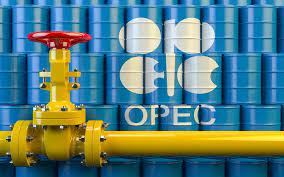
Filling stations in Lagos, Nigeria’s commercial capital, have raised the price of petrol from ₦860 to ₦930 per litre, marking an increase of at least ₦70. This price hike follows a broader trend in several regions across the country, including Abuja and major northern cities, where petrol prices now range from ₦950 to ₦970 per litre. This adjustment represents a sharp increase of ₦70 to ₦90 from the previous price of ₦880 per litre just days ago.
Filling stations such as MRS Oil & Gas, Ardova Plc, Heyden, Matrix Energy, North-West Petroleum, Total Energies, Mobil, Bovas, and Enyo, among others, have all reflected the new pricing regime. Some stations with special agreements with Dangote Petroleum Refinery, such as MRS Oil & Gas and Ardova, have been particularly quick to implement these changes.
The price increase follows a significant decision by Dangote Refinery to temporarily halt the sale of petroleum products in Naira, which had been the standard for transactions within the Nigerian market. The refinery, which is one of the largest in Africa, explained that it had exceeded the value of Naira-denominated crude oil it had received from the Nigerian National Petroleum Company Limited (NNPCL). This led to a mismatch between sales proceeds and crude oil procurement obligations, which are denominated in U.S. dollars.
As a result, Dangote Refinery announced it would switch to selling petroleum products in dollars temporarily. The refinery also stated that it would resume Naira sales once it receives more crude oil in Naira from NNPCL, with an ongoing agreement set to expire in March 2025.
The refinery’s decision has contributed to the sharp price increases observed at the pump. Petrol marketers that import petroleum products, as well as those supplied by the Dangote Refinery, have faced challenges due to fluctuations in crude prices and foreign exchange adjustments. While analysts suggest that the price war between Dangote Refinery and the NNPCL had previously led to more affordable prices for consumers, this new price adjustment indicates an immediate reversal of those gains for Nigerians.
Some experts, however, have viewed the price adjustments as part of a broader strategy to stabilize the Nigerian energy market and reduce the country’s dependency on imported petroleum products. Since the commencement of operations at the Dangote Refinery in December 2024, the facility has gradually ramped up its output and begun supplying diesel and aviation fuel, in addition to petrol.
Naira-Denominated Crude Sales Agreement
The Federal Executive Council (FEC) had previously directed that NNPCL begin selling crude oil to Dangote Refinery and other local refineries in Naira, in order to alleviate the pressure on the U.S. dollar and support local currency stabilization. This agreement, initiated in July 2024, was structured to last for six months, with a March 2025 expiration date. While the current price increases may create short-term challenges for consumers, it also underscores the need for ongoing negotiations and adjustments within Nigeria’s petroleum sector to ensure more stability in the long run.
Despite these adjustments, Nigerians continue to struggle with the consequences of rising fuel prices and unreliable electricity supply. The situation is exacerbated by the ongoing issues within the country’s energy infrastructure, making fuel a crucial resource for transportation, power generation, and other essential needs.
The Broader Context
Nigeria’s energy sector has faced considerable challenges for years, with most of the country’s state-owned refineries being non-operational. However, the Dangote Refinery, which has a daily capacity of 350,000 barrels and aims to reach 650,000 barrels by the end of 2025, has the potential to help ease the nation’s reliance on imported refined products. If the refinery reaches its full capacity, it could substantially reduce fuel shortages and stabilize the market.
Nevertheless, for now, Nigerians face the burden of higher petrol prices, compounded by persistent fuel queues and a volatile energy market. The situation underscores the urgent need for comprehensive reforms to address the country’s energy challenges and bring about long-term sustainability.





